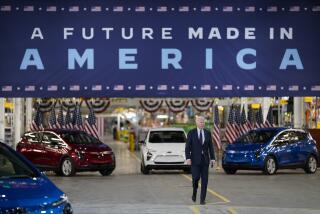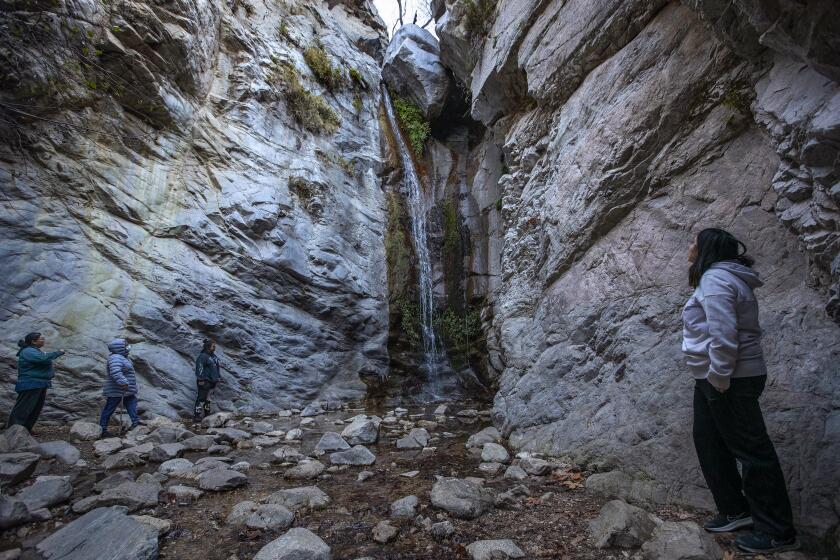Climate change: Trump’s dramatic move deserves dramatic response
President Donald Trump’s skepticism about climate change was made plain this week with his decision to block rules promulgated late in the Obama administration to force automakers to increase their average miles per gallon for cars and small trucks to 54.5 mpg by 2025, up sharply from the present 36 mpg. This decision was almost certainly sealed during Trump’s first week in office, when he was told by Ford CEO Mark Fields that the rules would cost 1 million jobs because they would force U.S. companies to build vehicles that customers don’t want.
Much of the response to the president’s dramatic action focused on what it might mean for California, which is specifically allowed to have tougher rules on vehicle emissions by the 1970 federal Clean Air Act and whose rules are also used by 13 other states. Yes, of course, California should fight to maintain its exemption. Yes, of course, local and state governments should continue their efforts to reduce greenhouse-gas emissions when they can.
But the Trump decision needs to be viewed in a larger context and deserves a more dramatic response. That context? The leader of the world’s most powerful nation and largest economy rejects what scientists describe as an existential threat to the human race. If the president doesn’t believe this threat exists, enactment of a carbon tax — considered the most efficient way to scale down greenhouse-gas emissions — seems a long shot. An op-ed written for The San Diego Union-Tribune by local scientist Emily Bockmon and local activist Carl Yaeckel makes a strong case for such a tax and notes growing bipartisan support in Congress. But a Trump veto of a carbon tax would likely be impossible to overcome.
Another Union-Tribune op-ed by Jane C.S. Long — until recently the associate director for energy and environment at Lawrence Livermore National Laboratory — outlines a plausible approach to taking on global warming that doesn’t require Trump’s approval. Long strongly supports conventional attempts to reduce greenhouse-gas emissions. But she notes that even if all emissions stopped immediately, “mankind has already ‘bought’ a thousand years of climate change.” Long says this means attempts to “geoengineer” the problem may be necessary, either by finding ways to capture carbon in the atmosphere or by using known methods to reflect incoming solar radiation. The first approach appears safe but is very difficult. The second approach is much less difficult but far more fraught with risks.
While geoengineering may seem futuristic, it is nothing new. In 2015, the National Academy of Sciences recommended research into the field as a hedge against catastrophe should emission reductions not do enough to slow global warming. It’s time to heed these scholars. The San Diego Union-Tribune Editorial Board can’t be alone in thinking a hedge against catastrophe makes common sense.
We call on one or more of the nation’s benevolent billionaires to consider privately funding a massive endeavor on the scale of the Manhattan Project to try to geoengineer such a hedge. People buy life insurance every day. Earth needs life insurance, too — especially when the most powerful man on it is indifferent to an existential threat to humanity.
Twitter: @sdutIdeas
Facebook: UTOpinion
More to Read
A cure for the common opinion
Get thought-provoking perspectives with our weekly newsletter.
You may occasionally receive promotional content from the Los Angeles Times.







